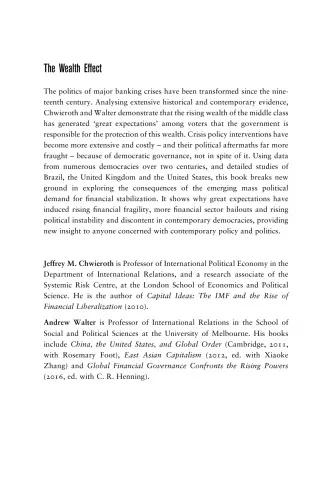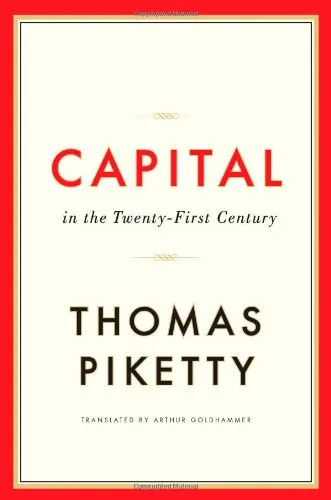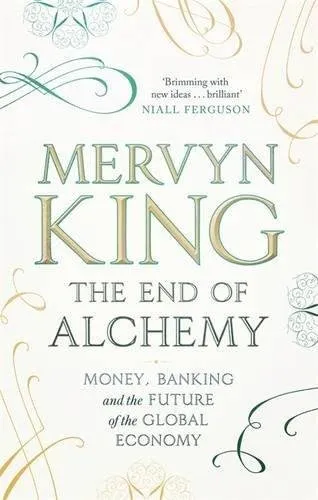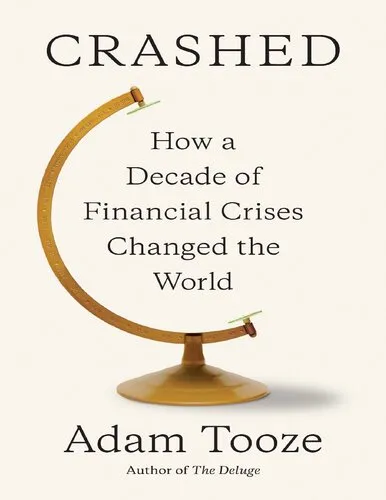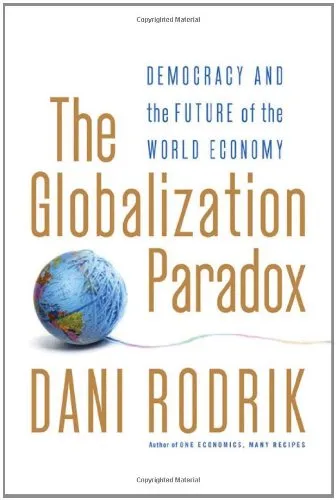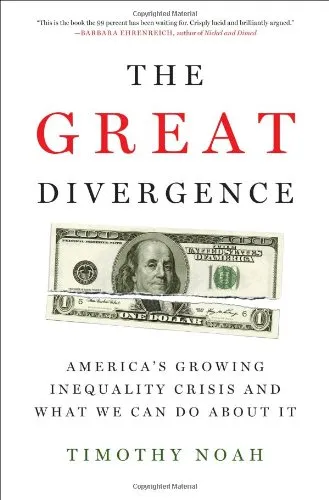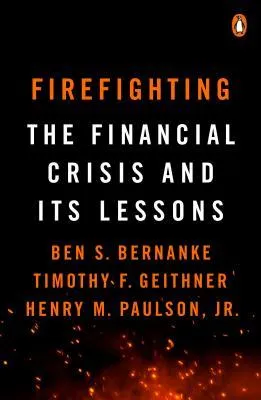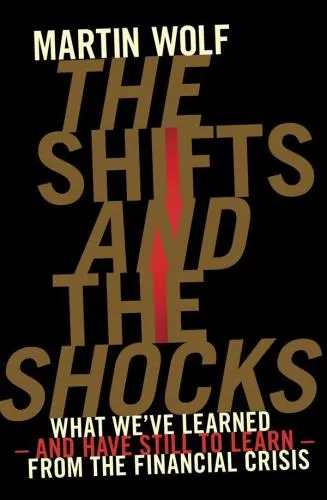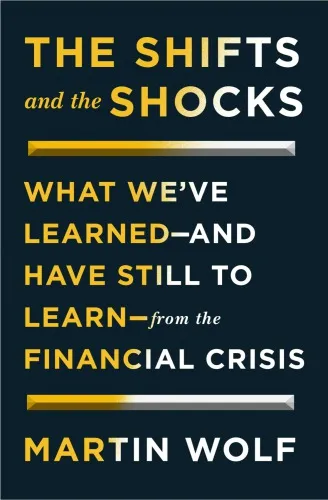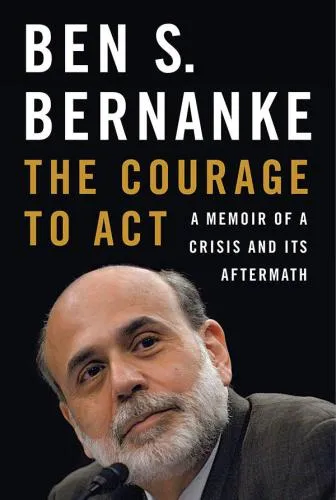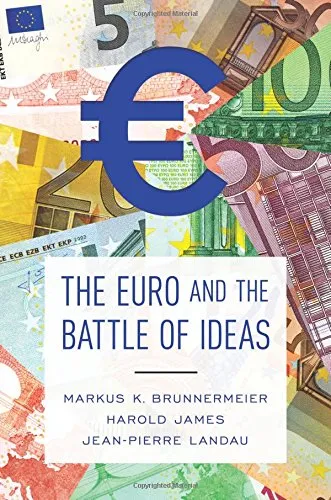The Wealth Effect: How The Great Expectations Of The Middle Class Have Changed The Politics Of Banking Crises
3.6
بر اساس نظر کاربران

شما میتونید سوالاتتون در باره کتاب رو از هوش مصنوعیش بعد از ورود بپرسید
هر دانلود یا پرسش از هوش مصنوعی 2 امتیاز لازم دارد، برای بدست آوردن امتیاز رایگان، به صفحه ی راهنمای امتیازات سر بزنید و یک سری کار ارزشمند انجام بدینRelated Refrences:
معرفی کتاب: اثر ثروت
کتاب "اثر ثروت: چگونه انتظارات بزرگ طبقه متوسط سیاست بحرانهای بانکی را تغییر داده است" سفر عمیقی به درک اجتماعی-اقتصادی و سیاسی از بحرانهای بانکی و نقش حیاتی طبقه متوسط در این موقعیتها ارائه میدهد. نوشته جفری ام. چویروث و اندرو والتر، این کتاب نمایی دقیق و موشکافانه از جایگاه طبقه متوسط در اقتصاد جهانی و تأثیرات آن در سیاستگذاریهای بانکی را به تصویر میکشد.
خلاصهای دقیق از کتاب
این کتاب به تحلیل اهمیت طبقه متوسط در روند بحرانهای بانکی میپردازد و نشان میدهد چگونه انتظارات و باورهای این قشر از جامعه میتوانند سیاستهای عمومی و حتی نتایج اقتصادی عظیمی را شکل دهند. نویسندگان این کتاب استدلال میکنند که در طول زمان، انتظارات طبقه متوسط برای افزایش ثروت، مخصوصاً از طریق داراییهای مالی، به طور قابل توجهی بر سیاستگذاری اقتصادی و سیاسی تأثیر گذاشته است.
در فصلهای متعدد کتاب، موردکاویهای تاریخی ارائه میشوند که چگونگی تأثیرگذاری این انتظارات را بر تصمیمگیریهای سیاستگذاران را توضیح میدهند. از بحران بزرگ 2008 گرفته تا تحولات اقتصادی دهههای گذشته، "اثر ثروت" نشان میدهد چگونه دموکراتیزاسیون دسترسی به سرمایه و افزایش مالکیت دارایی میتواند نخبگان سیاسی را تحت فشار قرار دهد تا سیاستهایی را اتخاذ کنند که بیشتر به نفع طبقه متوسط باشد.
نکات کلیدی
- طبقه متوسط و انتظارات آنها به عنوان محرکهای کلیدی در سیاستگذاری اقتصادی.
- روابط پیچیده بین مالکیت داراییها، ثروت و نهادهای سیاسی.
- چگونگی تأثیرگذاری فشار سیاسی طبقه متوسط بر سیاستگذاران برای ایجاد اصلاحات بانکی.
جملات برجسته از کتاب
«به همان اندازه که ثروت میتواند آزادی بیاورد، میتواند فشار را برای محافظت از آن نیز افزایش دهد؛ و این، اساس چرخش سیاست در لحظات بحران اقتصادی است.»
چرا این کتاب مهم است؟
اثر ثروت توسط چویروث و والتر به عنوان اثری بنیادین درک میشود که توانسته است زوایای پنهان رابطه بین ثروت خصوصی و سیاستهای عمومی را آشکار سازد. در زمانهای که بحرانهای اقتصادی معمولاً جنبهای اجتنابناپذیر از اقتصادهای جهانی شدهاند، دانستن چگونگی تأثیرگذاری نیروهای اجتماعی، به ویژه نیروهای ناشی از طبقه متوسط، بر سیاستگذاری اقتصادی برای چالشهای آینده ضروری است. این کتاب به پژوهشگران، سیاستگذاران و حتی عموم مردم این امکان را میدهد که با دیدی واضحتر به این روابط نگاه کنند و درک بهتری از عواملی که سیاستها را شکل میدهند پیدا کنند.
Introduction
Welcome to 'The Wealth Effect: How The Great Expectations Of The Middle Class Have Changed The Politics Of Banking Crises', a profound exploration of the intricate relationship between middle-class prosperity and the political dynamics surrounding banking crises. In this book, we delve into the evolution of the global financial landscape, examining how the expectations and demands of a growing middle class have influenced government responses to banking crises and reshaped financial policy.
Detailed Summary of the Book
In 'The Wealth Effect,' we, Chwieroth and Walter, embark on an ambitious project to trace the historical and political threads that link the emergence of the middle class with the policy transformations in banking crisis management. Our analysis covers a broad spectrum, including pivotal moments in financial history and their impacts on societal expectations.
We argue that as societies have transitioned from agrarian economies to industrialized and later service-oriented economies, the role of the middle class has grown significantly. This augmentation in economic participation has led to a shift in the political influence wielded by middle-class citizens. Their aspirations and desire for financial stability have, in effect, prompted governments to adopt protective measures during financial downturns, often prioritizing middle-class interests in the aftermath of banking crises.
Throughout the book, we draw on a wealth of data and case studies, from the Great Depression to the Great Recession, to illustrate how the economic security of the middle class has become a focal point for policymakers. This has resulted in a distinctive 'wealth effect,' where the political calculus of supporting financial institutions is heavily influenced by the potential impact on middle-class wealth.
Key Takeaways
- The middle class plays a crucial role in shaping political responses to banking crises.
- Economic transitions have elevated the financial expectations of middle-class citizens globally.
- Governments are increasingly likely to intervene in banking crises to protect middle-class interests.
- Historical case studies illustrate the consistency of this wealth effect over various banking crises.
- Understanding the political motivations behind crisis management can lead to better-informed financial policies.
Famous Quotes from the Book
"The aspirations of the middle class are not mere economic parameters but powerful political forces that have reshaped the landscape of global financial governance."
"In every era marked by financial turmoil, it is the expectations and fears of the middle class that silently steer the rudder of governmental response."
Why This Book Matters
Understanding the dynamics of banking crises and the political responses they elicit is critical in our interconnected global economy. 'The Wealth Effect' offers a nuanced perspective that extends beyond the economic models and into the socio-political realms influencing financial stability.
As banking crises become more frequent and potentially more severe, recognizing the expectations of the middle class and their impact on political decision-making can be pivotal for policymakers, economists, and academics. This book not only adds depth to the discourse surrounding financial crises but also equips readers with a framework to anticipate future shifts in policy and governance.
For anyone interested in the intersections of politics, economics, and social dynamics, 'The Wealth Effect' provides invaluable insights into the forces shaping our financial world.
دانلود رایگان مستقیم
شما میتونید سوالاتتون در باره کتاب رو از هوش مصنوعیش بعد از ورود بپرسید
دسترسی به کتابها از طریق پلتفرمهای قانونی و کتابخانههای عمومی نه تنها از حقوق نویسندگان و ناشران حمایت میکند، بلکه به پایداری فرهنگ کتابخوانی نیز کمک میرساند. پیش از دانلود، لحظهای به بررسی این گزینهها فکر کنید.
این کتاب رو در پلتفرم های دیگه ببینید
WorldCat به شما کمک میکنه تا کتاب ها رو در کتابخانه های سراسر دنیا پیدا کنید
امتیازها، نظرات تخصصی و صحبت ها درباره کتاب را در Goodreads ببینید
کتابهای کمیاب یا دست دوم را در AbeBooks پیدا کنید و بخرید
1484
بازدید3.6
امتیاز0
نظر98%
رضایتنظرات:
3.6
بر اساس 0 نظر کاربران
Questions & Answers
Ask questions about this book or help others by answering
No questions yet. Be the first to ask!
